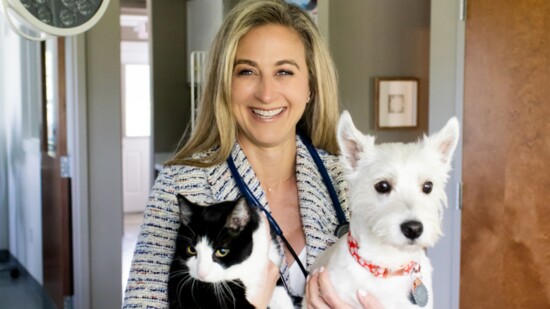When I was a kid, I had a Weimaraner, who during our Thanksgiving celebration, helped himself to an entire chocolate cake, that was in a sealed box, on top of the kitchen counter. Although he just had a bit of an upset “tummy”, that’s a Thanksgiving that I will never forget! For our upcoming holidays, our very own Dr. Megan Armani, veterinarian from Symbios Animal Health, has great advice to share to keep our pets safe. Thanksgiving is a time for families to gather and celebrate. It's crucial to remember that some of our favorite foods can be harmful to our pets. Let's explore the do's and don’ts of sharing Thanksgiving treats with our beloved dogs and cats with Dr. Armani.
The No-No List: Foods to Avoid
- Turkey Bones: While the aroma of roasted turkey fills the air, it's essential to keep turkey bones out of your pets' reach. Cooked bones can splinter and cause serious harm to your pets' digestive tract.
- Rich and Fatty Foods: Foods like gravy, buttery dishes, and high-fat meats can lead to pancreatitis in pets. This painful condition can result in vomiting, diarrhea, and severe abdominal discomfort.
- Onions and Garlic: Onions and garlic, often present in stuffing and other dishes, contain compounds that are toxic to pets and can lead to anemia and gastrointestinal upset.
- Grapes and Raisins: Grapes and raisins, commonly found in holiday dishes and desserts, can cause kidney failure in pets, even in small amounts.
- Chocolate and Sweets: Chocolate, especially dark chocolate, and any foods sweetened with xylitol are toxic to pets and should be kept far from their reach.
Pet-Safe Thanksgiving Delights
- Plain, Cooked Turkey: While you should avoid seasoned and fatty portions, a small amount of plain, cooked, boneless turkey meat can be a delightful treat for your pets. Just ensure it's free of spices, seasonings, and bones.
- Safe Veggies: Steamed, plain vegetables like plain green beans, carrots, or pumpkin can make a great addition to your pets' meals. These can provide extra nutrients without the risk of seasoning overload.
- Homemade Pet-Friendly Treats: If you're feeling creative, consider baking homemade pet treats using pet-safe ingredients. There are plenty of recipes available online that cater to pets' dietary needs.
- Commercial Pet Food Toppers: Some pet stores offer special pet-safe Thanksgiving meal toppers that can be added to your pets' regular food. These are formulated to be safe and delicious for your furry friends.
- Interactive Toys: Keep your pets engaged and distracted during the festivities by providing interactive toys filled with their regular kibble or special pet treats. This can help prevent them from begging at the dinner table.
Creating a Pet-Friendly Environment
- Safe Space: With the hustle and bustle of guests and excitement, it's a good idea to set up a quiet and comfortable space for your pets where they can retreat if they feel overwhelmed.
- Pet Supervision: Assign someone to watch over your pets during the gathering to prevent them from sneaking into trouble or being fed inappropriate foods by well-meaning guests.
- Mindful Disposal: Ensure that all garbage bags are securely tied and out of your pets' reach. Discarded food scraps, especially those containing bones or harmful ingredients, can be hazardous if ingested.
“This Thanksgiving let's keep our pets safe and healthy. By avoiding harmful foods and providing pet-safe treats, we can celebrate this festive occasion while keeping our furry friends' well-being a top priority. Wishing you and your pets a joyful and pet-friendly Thanksgiving!” Dr. Megan Armani, Symbios Animal Health. Visit https://symbios.vet/



